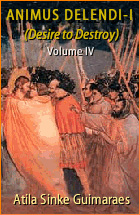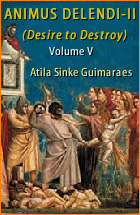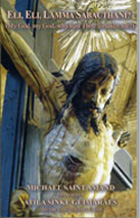Catholic Virtues
 |
 |
 |
 |
 |
 |
 |
The Penitential Psalms - V
The Joy that Comes from Penance
As we noted in the last article, the sinner comes to God at the start of Lent to ask for pardon. But in his soul he still feels doubt. Did God forgive him or not?
And so he asks again for pardon, and then again. He argues with God … asking for that pardon in the name of His goodness, and ends by arguing that it is for God’s glory: “My God, it is for Thy glory, forgive me!”
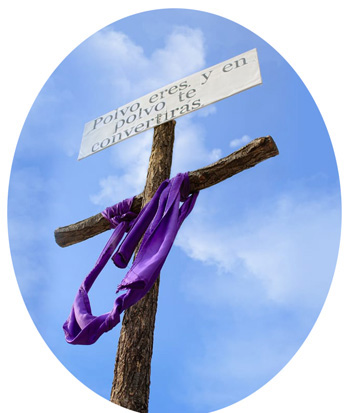 It is as if to say: “There is nothing in me that merits Thy forgiveness. But how beautiful for Thee it will be if Thou wilt forgive me. For myself, I do not deserve it. But, O Lord, Thou lovest Thy glory, and for love for It, I beg Thee to give me that which I do not deserve… O Lord forgive me!”
It is as if to say: “There is nothing in me that merits Thy forgiveness. But how beautiful for Thee it will be if Thou wilt forgive me. For myself, I do not deserve it. But, O Lord, Thou lovest Thy glory, and for love for It, I beg Thee to give me that which I do not deserve… O Lord forgive me!”
Each of these words is appropriate, preparing the man's spirit not only for a profound understanding of the seriousness of his sin, but also for an enormous confidence that God will forgive him.
The first of the seven Penitential Psalms does not speak so directly about confidence. One has the impression that the sun of confidence rises as the Psalms follow one after another. And the last words are an explosion of confidence: “You will save me, O God!” It is as if the grace spoke inside his soul and ended up giving him the certainty that he was saved. Then, he sings with joy, “I am saved!”
What a wonderful joy! It is the start of Lent. And because he is saved, he wants to do penance; because he is saved, he wants to suffer, to atone for the sins he committed.
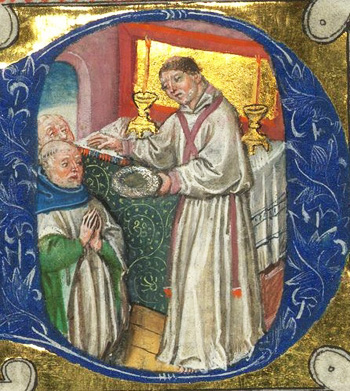 And so he approaches the priest and kneels and bows his head; then the priest places ashes on his forehead, makes a cross and says: “Remember man, thou art dust, and unto dust thou shalt return.” That is to say: "Be careful! It is not that easy. Death always hovers around you. God is infinitely good, it is true; but He is also infinitely just. Open your eyes, go and make penance."
And so he approaches the priest and kneels and bows his head; then the priest places ashes on his forehead, makes a cross and says: “Remember man, thou art dust, and unto dust thou shalt return.” That is to say: "Be careful! It is not that easy. Death always hovers around you. God is infinitely good, it is true; but He is also infinitely just. Open your eyes, go and make penance."
And what is this penance? It is fasting. For some, it is eating bread and water. It is also doing difficult things. Thus can you see the nature of the Church.
One of the first ceremonies mentioned here is the blessing of the hair shirts, or cilices. What were the cilices like? Most of the time they were belts with small iron hooks that actually scratched the flesh, which the person wore, for example, during Lent around the torso or thigh, even causing bloodshed, a continuous bleeding. Some Saints wore them all their lives.
Thus you see the attitude of the Church, in her depths she says: Do penance to the point of shedding blood… But you are my son. So, bring me the instrument of your torture, I will pour my blessings upon it!
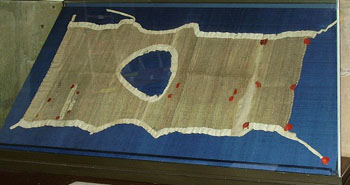
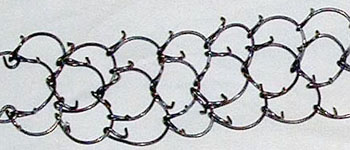 You who are listening here in the auditorium did what all audiences do when one hears words about God’s mercy: There are exclamations of enthusiasm! I wish that when you hear talk about God’s justice, you would have no less enthusiasm.
You who are listening here in the auditorium did what all audiences do when one hears words about God’s mercy: There are exclamations of enthusiasm! I wish that when you hear talk about God’s justice, you would have no less enthusiasm.
Man was not made to show excitement only in the face of God's mercy. Man was made to also be enthused about the justice of God. Man should find justice beautiful. He should be filled with admiration for justice. This also should give you enthusiasm.
Why? Because when the sinner understands the evil of his sin, and sees how much God hates his sin, he realizes what is divine purity. And realizing the infinite purity of God, how can he not be enthused?
One who has a horror of sin loves the virtue that sin violates, that sin transgresses. Therefore, it is gravely necessary that we become enthusiastic in the face of God's severity. “O my Lord, how Thou dost hate my sins! I ask Thee to: give me a spark of Thy sacred hatred for my sins!” What a beautiful prayer this is! How few people say it.
Afterwards, of course, we must ask for mercy. Who can survive without God's mercy? It is unthinkable! But let us love His justice also.
Mercy reaches its apex in Mary
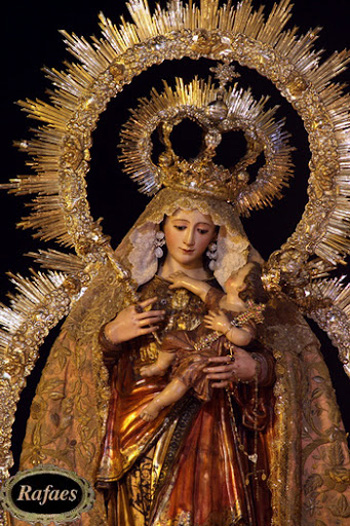 We cross the threshold of Lent on Ash Wednesday, and then we enter Lent. We should ask to have a true horror for our sins; we should ask for a reverent love for this execration that God makes of our sins. We should ask God to hate our sins, as well as the sins of others. And we should ask God to grant us mercy, without which we are unable to remain in His presence.
We cross the threshold of Lent on Ash Wednesday, and then we enter Lent. We should ask to have a true horror for our sins; we should ask for a reverent love for this execration that God makes of our sins. We should ask God to hate our sins, as well as the sins of others. And we should ask God to grant us mercy, without which we are unable to remain in His presence.
I just spoke of the word “mercy.” That is because I am preparing the conclusion of my commentary, and this conclusion has a name... and this name is Maria!
All that I have spoken of until now, man cannot obtain if Holy Mary does not ask for it. She is the necessary Mediatrix. By the will of God, she is the necessary Mediatrix of all the prayers we direct to Him; she is the Mediatrix of all the graces that come from Him to us. If we repent of our sins, it was she who asked for it, that is how we obtained that repentance.
If we have the desire to do penance, it is she who asked it for us. If we have the strength to carry out the penance that we owe, it is she who will ask for this strength for us. And, in the end, having done penance and feeling ourselves reconciled to God, she is the smile of God upon us. Thus, like the children of Our Lady whom we are, we must end this reflection with these words: Salve Regina Mater Misericórdia!
Psalm 50
The Fourth Penitential Psalm
The repentance & confession of David after his sin
Have mercy on me, O God: according to thy great mercy.
And according to the multitude of thy tender mercies, blot out my iniquity.
Wash me yet more from my iniquity: and cleanse me from my sin.
For I know my iniquity, and my sin is always against me.
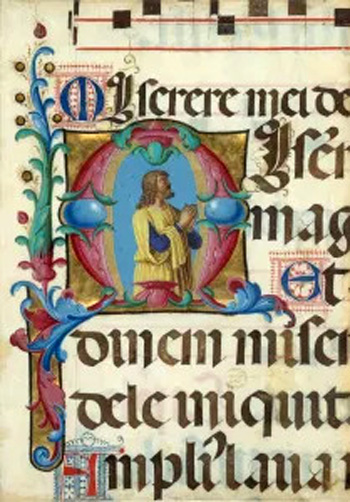 To Thee only have I sinned, and I have done evil before Thee: that Thou mayst be justified in thy words, and that Thou mayst overcome when thou art judged.
To Thee only have I sinned, and I have done evil before Thee: that Thou mayst be justified in thy words, and that Thou mayst overcome when thou art judged.
For behold, I was conceived in iniquities, and in sins my mother conceived me.
For behold, thou hast loved truth: the uncertain and hidden things of thy wisdom thou hast made manifest to me.
Thou shalt sprinkle me with hyssop, and I shall be cleansed: Thou shalt wash me, and I shall be made whiter than snow.
To my hearing thou shalt give joy and gladness, and the bones that have been humbled will rejoice.
Turn away thy face from my sins: and blot out all my iniquities.
Create a clean heart in me, O God: and renew a right spirit within my bowels.
Cast me not away from thy face; and take not thy holy spirit from me.
Restore unto me the joy of thy salvation, and strengthen me with a perfect spirit.
I will teach the unjust thy ways: and the wicked shall be converted to thee.
Deliver me from blood, O God, thou God of my salvation: and my tongue shall extol thy justice.
O Lord, Thou wilt open my lips: and my mouth shall declare thy praise.
For if Thou hadst desired sacrifice, I would indeed have given it: with burnt offerings thou wilt not be delighted.
A sacrifice to God is an afflicted spirit: a contrite and humbled heart, O God, thou wilt not despise.
Deal favorably, O Lord, in thy good will with Sion; that the walls of Jerusalem may be built up.
Then shalt thou accept the sacrifice of justice, oblations and whole burnt offerings: then shall they lay calves upon thy altar.
Gloria Patri …



‘Dust thou art, and unto dust thou shalt return’
Each of these words is appropriate, preparing the man's spirit not only for a profound understanding of the seriousness of his sin, but also for an enormous confidence that God will forgive him.
The first of the seven Penitential Psalms does not speak so directly about confidence. One has the impression that the sun of confidence rises as the Psalms follow one after another. And the last words are an explosion of confidence: “You will save me, O God!” It is as if the grace spoke inside his soul and ended up giving him the certainty that he was saved. Then, he sings with joy, “I am saved!”
What a wonderful joy! It is the start of Lent. And because he is saved, he wants to do penance; because he is saved, he wants to suffer, to atone for the sins he committed.

The ashes remind us of our final end
And what is this penance? It is fasting. For some, it is eating bread and water. It is also doing difficult things. Thus can you see the nature of the Church.
One of the first ceremonies mentioned here is the blessing of the hair shirts, or cilices. What were the cilices like? Most of the time they were belts with small iron hooks that actually scratched the flesh, which the person wore, for example, during Lent around the torso or thigh, even causing bloodshed, a continuous bleeding. Some Saints wore them all their lives.
Thus you see the attitude of the Church, in her depths she says: Do penance to the point of shedding blood… But you are my son. So, bring me the instrument of your torture, I will pour my blessings upon it!

Above, the hairshirt of King Louis IX;
below, a cilice with spikes

Man was not made to show excitement only in the face of God's mercy. Man was made to also be enthused about the justice of God. Man should find justice beautiful. He should be filled with admiration for justice. This also should give you enthusiasm.
Why? Because when the sinner understands the evil of his sin, and sees how much God hates his sin, he realizes what is divine purity. And realizing the infinite purity of God, how can he not be enthused?
One who has a horror of sin loves the virtue that sin violates, that sin transgresses. Therefore, it is gravely necessary that we become enthusiastic in the face of God's severity. “O my Lord, how Thou dost hate my sins! I ask Thee to: give me a spark of Thy sacred hatred for my sins!” What a beautiful prayer this is! How few people say it.
Afterwards, of course, we must ask for mercy. Who can survive without God's mercy? It is unthinkable! But let us love His justice also.
Mercy reaches its apex in Mary

The apex of mercy is expressed in Our Lady
I just spoke of the word “mercy.” That is because I am preparing the conclusion of my commentary, and this conclusion has a name... and this name is Maria!
All that I have spoken of until now, man cannot obtain if Holy Mary does not ask for it. She is the necessary Mediatrix. By the will of God, she is the necessary Mediatrix of all the prayers we direct to Him; she is the Mediatrix of all the graces that come from Him to us. If we repent of our sins, it was she who asked for it, that is how we obtained that repentance.
If we have the desire to do penance, it is she who asked it for us. If we have the strength to carry out the penance that we owe, it is she who will ask for this strength for us. And, in the end, having done penance and feeling ourselves reconciled to God, she is the smile of God upon us. Thus, like the children of Our Lady whom we are, we must end this reflection with these words: Salve Regina Mater Misericórdia!
The Fourth Penitential Psalm
The repentance & confession of David after his sin
Have mercy on me, O God: according to thy great mercy.
And according to the multitude of thy tender mercies, blot out my iniquity.
Wash me yet more from my iniquity: and cleanse me from my sin.
For I know my iniquity, and my sin is always against me.

A plea for mercy & pardon
For behold, I was conceived in iniquities, and in sins my mother conceived me.
For behold, thou hast loved truth: the uncertain and hidden things of thy wisdom thou hast made manifest to me.
Thou shalt sprinkle me with hyssop, and I shall be cleansed: Thou shalt wash me, and I shall be made whiter than snow.
To my hearing thou shalt give joy and gladness, and the bones that have been humbled will rejoice.
Turn away thy face from my sins: and blot out all my iniquities.
Create a clean heart in me, O God: and renew a right spirit within my bowels.
Cast me not away from thy face; and take not thy holy spirit from me.
Restore unto me the joy of thy salvation, and strengthen me with a perfect spirit.
I will teach the unjust thy ways: and the wicked shall be converted to thee.
Deliver me from blood, O God, thou God of my salvation: and my tongue shall extol thy justice.
O Lord, Thou wilt open my lips: and my mouth shall declare thy praise.
For if Thou hadst desired sacrifice, I would indeed have given it: with burnt offerings thou wilt not be delighted.
A sacrifice to God is an afflicted spirit: a contrite and humbled heart, O God, thou wilt not despise.
Deal favorably, O Lord, in thy good will with Sion; that the walls of Jerusalem may be built up.
Then shalt thou accept the sacrifice of justice, oblations and whole burnt offerings: then shall they lay calves upon thy altar.
Gloria Patri …


Posted March 8, 2024






